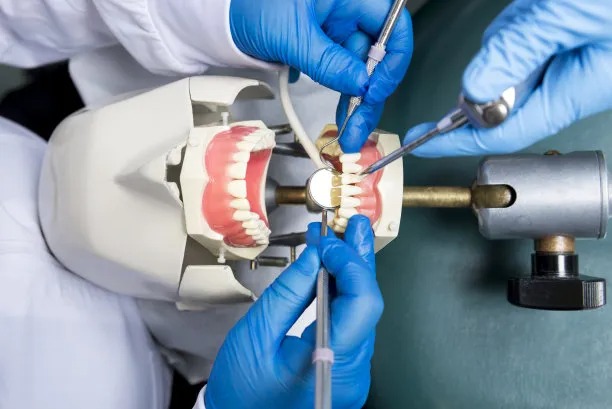Summary: Dental implant procedures can dramatically improve the quality of life for patients with missing teeth, yet safety and success hinge on critical guidelines that benefit both patients and practitioners. This article outlines essential considerations that ensure effective communication, the importance of a thorough assessment, meticulous surgical planning, and post-operative care. By focusing on these areas, dental professionals can enhance outcomes and provide a positive experience for their patients. The synergy between patient and provider during this process is vital, with clear guidelines paving the way for successful results.
1. Importance of Clear Communication

Effective communication is the cornerstone of any successful dental implant procedure. It starts with the first consultation, where practitioners must clearly explain the procedure, including potential risks and benefits. Patients should feel empowered to ask questions and express any concerns they may have. By fostering an open dialogue, trust is established, which can significantly affect their willingness to proceed.
Moreover, practitioners should ensure that they tailor their explanations to meet individual patient needs. Simplifying complex medical terminology helps patients understand their treatment options, thereby making informed decisions. When patients are well-informed about what to expect, they are more likely to feel comfortable and confident in the planned procedures.
Regular follow-up discussions are also crucial. After an initial consultation, patients should have ongoing access to their dental team for updates or additional queries. This establishes a supportive atmosphere that encourages ongoing communication throughout the process, which can alleviate anxiety and lead to improved patient satisfaction.
2. Comprehensive Patient Assessment
A thorough assessment of the patients oral health and overall medical condition is vital before undertaking dental implant procedures. This process typically includes detailed imaging studies, such as X-rays or 3D scans, to evaluate bone density and structure. Such assessments help practitioners determine if the implant site is suitable for successful placement.
Additionally, practitioners should consider the patient’s medical history, including any pre-existing conditions such as diabetes or autoimmune diseases, which can affect healing and implant success rates. This comprehensive evaluation can identify any contraindications that may require alternative approaches or additional preparations.
Patient assessments should also assess the psychological readiness of the patient for the procedure. Understanding a patient’s motivations and expectations is crucial, as their mental and emotional states can affect recovery and satisfaction with the results. A well-rounded assessment ultimately contributes to patient-centered care and tailored treatment plans.
3. Meticulous Surgical Planning
Once the pre-procedure assessments are complete, meticulous surgical planning becomes essential. Practitioners must create a detailed surgical strategy that outlines each step of the procedure. This includes assessing the optimal implant size, type, and position, as well as planning for any grafting materials if bone density is insufficient.
Utilizing advanced technology, such as computer-guided implant planning, can enhance precision and predictability during surgery. Such tools allow for individualized treatment plans based on the patients unique anatomical features, ultimately improving success rates and minimizing complications.
Additionally, preparing for challenges is integral to a successful procedure. Practitioners should anticipate any potential complications, both during and post-op, preparing contingency plans as necessary. Proper planning ensures that the team is equipped to handle unexpected situations efficiently, which contributes to both patient safety and procedural success.
4. Emphasis on Post-operative Care
Post-operative care is often overlooked but is critical to ensuring a successful implant experience. Patients should receive comprehensive instructions regarding aftercare, including dietary restrictions, oral hygiene practices, and the management of discomfort. Ensuring that patients understand these guidelines can significantly affect their recovery trajectory.
Regular follow-up appointments are also important during the healing process. These visits allow practitioners to monitor the patients progress and address any concerns that may arise. Furthermore, close monitoring can identify and mitigate any complications before they escalate.
Beyond the immediate recovery phase, practitioners should encourage patients to maintain ongoing oral hygiene and attend regular check-ups. This commitment helps ensure the longevity of the implants and promotes overall oral health, contributing to sustained success and patient satisfaction.
Summary:
The successful outcome of dental implant procedures relies heavily on a set of essential guidelines for both patients and practitioners. Clear communication fosters trust and understanding, while thorough assessments allow for tailored, patient-centered care. Meticulous planning enhances both safety and success during procedures, and proper post-operative care is critical for long-term results. Each component of these guidelines works in concert to ensure that both patients and practitioners enjoy a successful experience.
This article is compiled by Vickong Dental and the content is for reference only.
Vickong Dental
Vickong Dental is a large medical group established in Hong Kong in 2008 by professors from well-known medical universities in Guangdong and Hong Kong, as well as medical doctors from key national '985' universities (including Master's supervisors and senior professors). The chain of branches brings together expert dentists with PhDs and Master's degrees from Hong Kong and Mainland China, committed to providing high-quality dental treatment.
"Vickong Dental Practices the University Motto of 'Healing and Serving Society,' with a Stable Operation for Sixteen Years. It Has Been honored with Hong Kong Enterprise Leaders's Choice,' and is a Global Trusted Implant Center for the Nobel Implant System. Recommended by Hong Kong Metro Broadcast and Guangdong Television, it Serves Customers from Over Thirty Countries and Regions, Gaining the Trust and Favor of Citizens from the Guangdong-Hong Kong-Macau Greater Bay Area and Surrounding Cities.

Thousands of customers' unanimous praise
The most recognized and highly recommended dental service by customers in the Guangdong-Hong Kong-Macau Greater Bay Area
We Ensure You Receive Detailed Care and Attention Here
Hong Kong standards, Shenzhen prices, Your Trusted English-speaking dentists

Vickong Dental Medical-Grade Instrument Disinfection Process
Vickong Dental Medical-Grade Instrument Disinfection Process

Vickong Dental Chain: A Warm and Comfortable Environment for Treatment






Appointment Hours

Q&A
Why choose Vickong Dental?
Vickong Dental practices the university motto 「Medicine to Benefit Society」, with each branch bringing together highly qualified dentists with doctoral and master’s degrees from Hong Kong and the Mainland, and has maintained seventeen years of steady operation。Recipient of 「2024 Hong Kong Enterprise Leaders Brand」, 「2025 Hong Kong Enterprise Leaders Brand」, a Nobel Biocare Global Trusted Implant Center, and a brand recommended by Metro Radio Hong Kong and Guangdong TV。
To date, we have served customers from more than thirty countries and regions,earning exceptionally high word-of-mouth recognition and trusted recommendations from residents across the Guangdong-Hong Kong-Macao Greater Bay Area and surrounding cities
We have eight major branches in Zhuhai、Shenzhen,and a consultation and service assurance center in Hong Kong,so you can book a free consultation at any time for any questions,which is very reassuring.
If I do not accept the quotation after the CT scan, will I be charged??
No! As long as the actual treatment has not started, you will not be charged any fees.
Will there be any additional charges during the treatment process?
No, there won’t be any additional charges. Before treatment begins, we will clearly explain the treatment plan and its corresponding fees. Only after the patient agrees and signs the consent form will we proceed with the dental service.
Can I pay in Hong Kong dollars?
Yes. Vickong Dental accepts payment in Hong Kong dollars. The amount will be converted based on the exchange rate of the day, and the applicable rate will be clearly communicated to you in advance.
Can I reschedule my appointment at any time?
Yes. Please contact us via **WeChat** or **WhatsApp** as early as possible, providing your original appointment time and details, along with your preferred new date and time slot for rescheduling.













